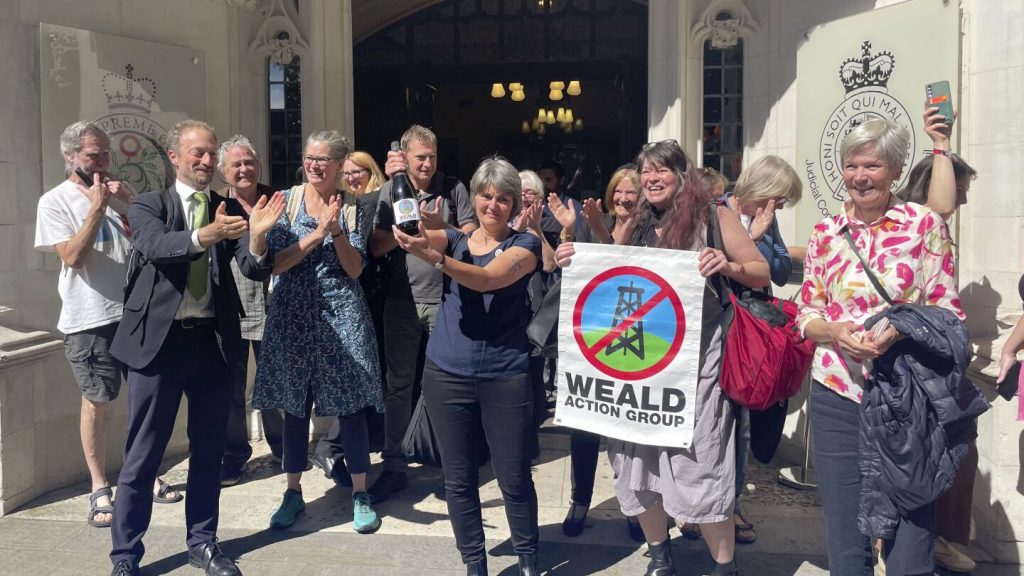The U.K. Supreme Court ruled that planners reviewing well-drilling permits must consider the greenhouse gas emissions from burning the extracted oil. This decision came after a woman named Sarah Finch challenged a permit approval by Surrey County Council to allow additional oil wells at a site called Horse Hill near London Gatwick Airport. Finch argued that the environmental impact assessment conducted before the permit was approved had failed to consider future emissions from burning the oil produced over 20 years. The Supreme Court agreed in a 3-2 decision, stating that the council’s failure to assess the climate impact of the combustion of the oil made its decision to grant planning permission unlawful.
Finch, who had previously lost at the High Court and Court of Appeal, hailed the ruling as a “massive vindication” and expressed her joy over the decision. She emphasized the importance of considering the climate impact of fossil fuel production and called it a tipping point in the fight against global warming. This victory comes amidst a rise in climate-related court cases globally, with activists challenging governments and companies to take action against climate change. In recent years, there have been several landmark rulings in favor of climate activists, urging countries and corporations to address their emissions and environmental impact.
The area where the drilling was permitted, known as the “Gatwick Gusher,” was once expected to produce a significant portion of the U.K.’s oil demand. However, protests against the project increased after a series of small earthquakes in 2018 were attributed to oil drilling activities. While a report found no causal link between the earthquakes and drilling, skepticism remained. The approval by the council in 2019 would have allowed the site to expand to six wells extracting 3.6 metric tons of oil over 20 years. Following the Supreme Court’s decision, the company behind the project, UK Oil & Gas (UKOG), indicated a strategic shift away from oil and gas towards underground hydrogen storage.
UKOG stated that it would now work with the council to revise its plans and produce fewer barrels of oil per day to avoid triggering a mandatory environmental impact report. The company’s chief executive, Stephen Sanderson, expressed disappointment with the court’s ruling but emphasized the company’s commitment to focusing on hydrogen storage. This shift in focus from oil and gas towards more sustainable energy sources reflects a wider trend in the energy industry towards cleaner alternatives. The court’s decision highlights the growing pressure on fossil fuel companies to reduce their emissions and environmental impact in line with climate goals.
Overall, the U.K. Supreme Court’s ruling on considering greenhouse gas emissions from burning extracted oil in well-drilling permits signifies a significant win for fossil fuel opponents. The decision emphasizes the importance of assessing the climate impact of fossil fuel production and marks a turning point in the fight against global warming. This victory aligns with a broader trend of climate-related court cases globally, where activists are holding governments and companies accountable for their role in contributing to climate change. As the energy industry shifts towards cleaner alternatives, the ruling serves as a reminder of the need to prioritize sustainability and reduce emissions to address the climate crisis.


